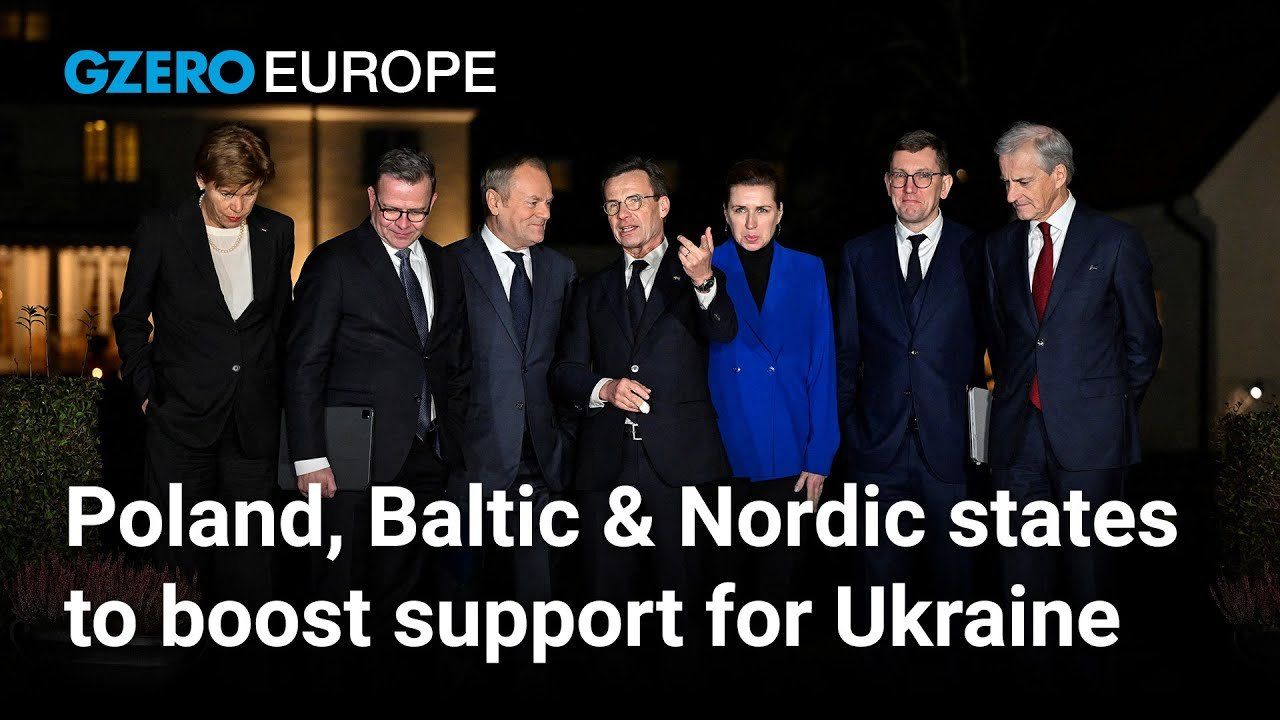Leaders of Poland, Nordic & Baltic countries affirm strong support for Ukraine

Carl Bildt, former prime minister of Sweden and co-chair of the European Council on Foreign Relations, shares his perspective on European politics from Northern Italy.
What was the purpose of the big leaders meeting in Sweden today?
Well, it was not entirely unique, but highly important meetings of the Nordic countries, the Baltic countries, and Poland. It's eight countries in total that came together on the leaders level in order to, first, of course, to say that we do support Ukraine and we are ready to do more, to say that we are ready to do more for defense. And these are countries, you should know, that they're all well above the 2% target of defense spending. Poland is above 4%, even. These are also the countries in the world that are the highest in terms of their proportion of GDP in terms of supporting Ukraine.
So the fact that they came together today to say this, "We are ready to do more to support Ukraine, we are ready to do more to reinforce our defense and security," was, of course, a strong signal of reassurance to Ukraine, a signal of some sort of political deterrence to Russia, but of course was also a signal of sorts to the United States and the incoming Trump administration that, "Here we are. We ready to do our part. We've already done it and we're ready to do more."
What is the nature of the political transition ongoing in the European Union?
Well, it's going amazingly well, against expectations, I have to say. All of the proposed members of the European Commission have been approved by the European Parliament. The entire commission has now been approved in a vote. So the commission comes into force, the sort of second Ursula von der Leyen Commission on the 1st of December. That's also the date when the new president of the European Council, António Costa, takes over. So by December 1st, the entire European Union transition is there, and the European Union is institutionally ready for the next five years. It will be demanding, yes.
- Ukraine is fighting for all of us, says Estonia's former president Kersti Kaljulaid ›
- "Peace" under authoritarian occupation isn't peaceful: Estonia's Kaja Kallas ›
- As Russia gains ground in Ukraine, Baltic states worry the war will spread west ›
- Sweden joins NATO: what has the alliance gained? ›
- Why Sweden and Finland joined NATO ›
- Will Trump reverse Biden’s move on long-range missiles for Ukraine? ›
- Ukraine can still win this war, says Poland's FM ›
- Russia’s next target? Why the Baltics are wary of Putin - GZERO Media ›